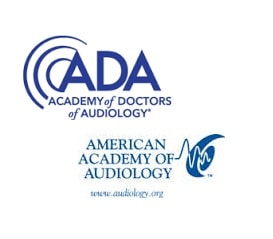In a move that perhaps caught some in the audiology community by surprise, the Academy of Doctors of Audiology (ADA) announced its support of S.9, the Over-the-Counter Hearing Aid Act of 2016. In a statement released by ADA, it said that the organization “commends Senators Warren and Grassley for their foresight in introducing and advancing this legislation, which if enacted, will remove unnecessary and burdensome barriers to hearing care for millions of Americans”.
The Over-the-Counter Hearing Aid Act of 2016 (S.9), if enacted, would allow hearing aids “intended for use by adults to compensate for mild to moderate hearing impairment” to be sold to consumers over the counter (OTC). In addition to eliminating the requirement for medical clearance to purchase a hearing aid, the legislation would also task the FDA with issuing appropriate regulations for the safety and labeling requirements for the new OTC category of hearing aids, as well as update the draft guidance on Personal Sound Amplification Products (PSAPs).
The ADA and its members seek to foster expanded access for consumers to audiology services. We strive to accomplish this goal through the advancement of practitioner excellence and high ethical standards in the provision of quality audiologic care. The Over-the Counter Hearing Aid Act will help to facilitate these objectives and is consistent with the ADA’s mission and philosophy. –-Exerpt from ADA Statement in Support of S.9
While the organization supports the proposed legislation, ADA recommends that all over-the-counter (OTC) products be very specifically labeled and include a strong recommendation that a patient seek a comprehensive audiologic evaluation from an audiologist or physician prior to purchasing any device for the treatment of hearing loss, particularly if the patient exhibits any of the warning signs of ear disease (including tinnitus, dizziness, drainage from the ear, sudden hearing loss, asymmetric hearing, foreign body in the ear, cerumen impaction, pain, congenital or traumatic deformity of the ear).
ADA recommends that labeling state that the device is a “non- surgical, air conduction hearing aid intended to address mild to moderate hearing loss.” It also recommends that all amplification devices be required to adhere to defined maximum output thresholds.
ADA contends the availability of OTC hearing devices, including appropriate labeling and safeguards, will allow consumers to make better informed decisions about their treatment options, and will likely also make products more affordable and accessible to the hearing impaired.
“The ADA stipulates that there are risks with self-treatment, including overlooking conditions that warrant medical intervention. However, we contend that in the current regulatory environment, those risks are already being taken with either limited information–or worse yet, misinformation.”
According to the statement, ADA believes that the current regulatory environment has not kept pace with rapid advances in technology and by creating an OTC hearing device market, it “will foster competition, broaden consumer choice, improve affordability, and accelerate future innovation.” Furthermore, because consumers already have direct-to-consumer access to hearing aids and similar unregulated technologies via the internet, the creation of a regulated OTC class will not increase existing risks to the public.
AAA Offers Support of FDA Decision
With the announcement earlier this week that the FDA will no longer enforce the requirement for medical clearance to purchase a hearing aid, the American Academy of Audiology (AAA) released a statement applauding the decision of the FDA.
“The Academy is thrilled that the FDA has heeded the comments from stakeholders in the hearing health community and has taken immediate steps to improve hearing aid accessibility for patients and remove unnecessary barriers for those seeking hearing health-care.” –Ian Windmill, PhD, AAA President
Having long advocated for such a move by the FDA, the Academy says that it “applauds” the decision.






